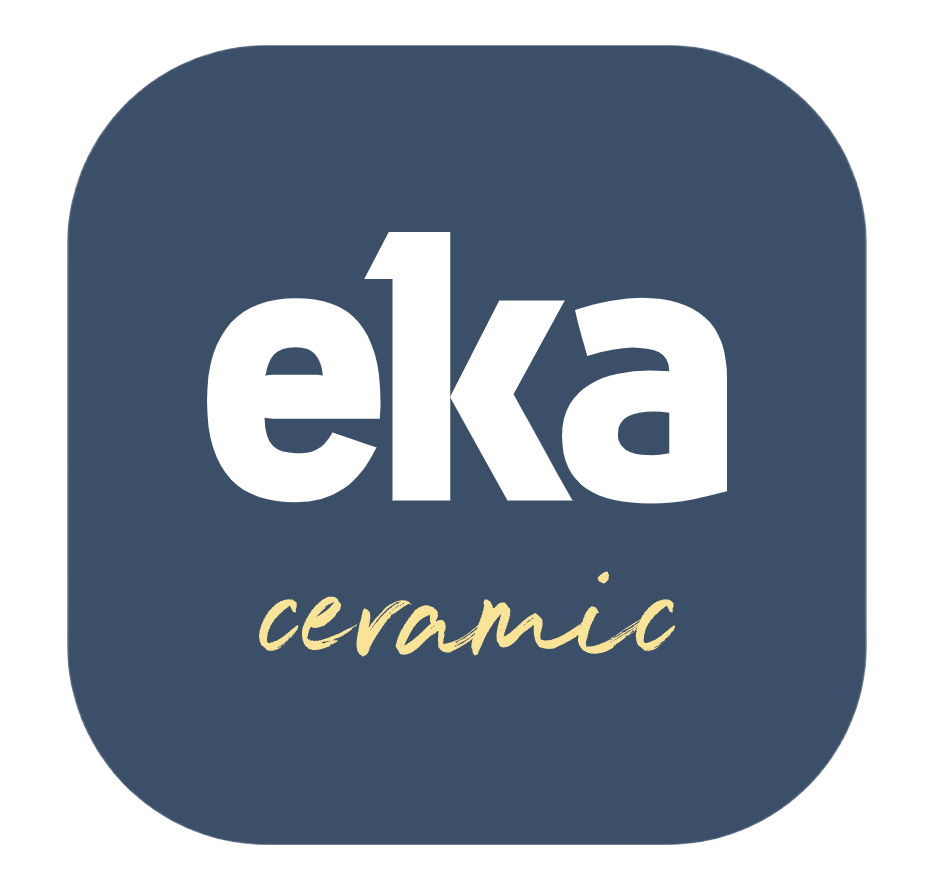For B2B buyers, selecting the material of mugs goes beyond health concerns. It involves factors like the supply chain of raw materials, the complexity of production processes, costs, and customization options. In this blog, we will provide a detailed analysis of the health aspects, raw materials, production processes, procurement costs, and customization possibilities of various mug materials, helping you make strategic decisions when choosing the best mugs for your customers.
1. Raw Material Analysis Behind the Healthiness of Mug Materials
Different mug materials are made from various raw materials, each exhibiting different stability, chemical reactivity, and environmental impact when in contact with beverages. We will examine popular mug materials such as ceramic, porcelain, glass, stainless steel, plastic, and bamboo fiber to assess their health benefits and production characteristics.
a. Ceramic Mugs
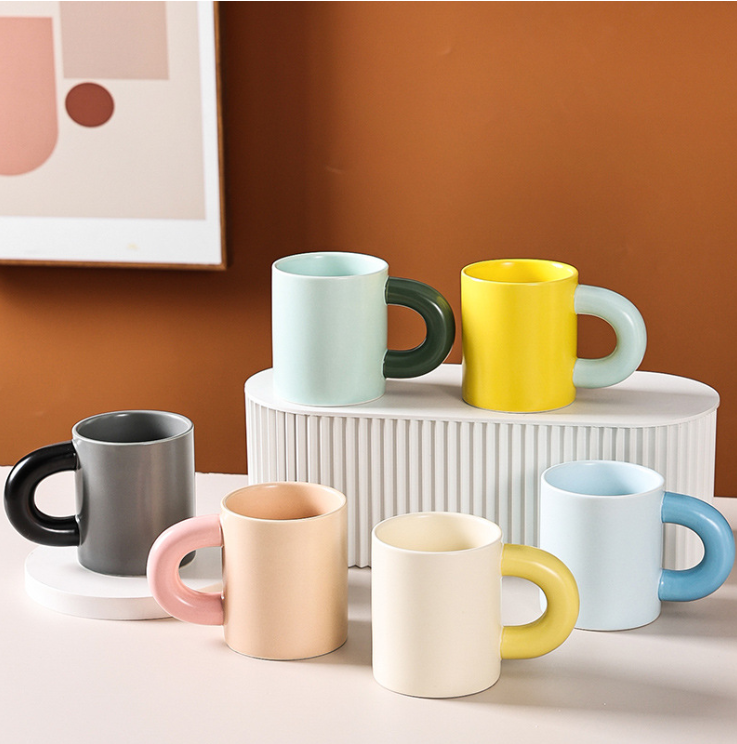
- Raw Materials: Ceramic mugs are primarily made from clay (typically kaolin) with a glaze coating to enhance waterproofness and aesthetics. The choice of metal oxides in the glaze determines the color and texture of the mug.
- Health Benefits: As long as lead-free and cadmium-free food-safe glazes are used, ceramic mugs are highly safe in terms of health. The natural materials used make them an eco-friendly choice.
- Production Process: Ceramic mugs are fired at high temperatures, usually between 1200°C and 1400°C. The choice and uniform application of glaze are critical in avoiding cracks or harmful substance leakage.
- Procurement Costs: While the raw materials for ceramics are relatively inexpensive, the complexity of high-temperature firing can lead to higher production costs, especially for customized glazes or intricate designs.
- Customization Options: Ceramic mugs offer a wide range of customization options. Glazes can be tailored for color, pattern, and texture, and both simple printed logos and full-color designs are possible, making them a highly flexible option for personalized orders.
b. Porcelain Mugs
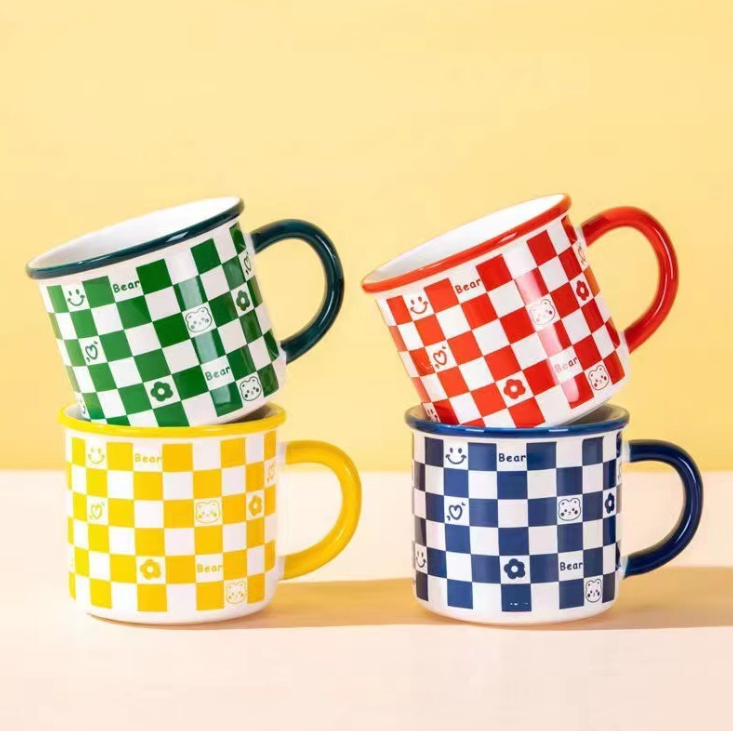
- Raw Materials: Like ceramics, porcelain is made from kaolin, but with higher purity and added feldspar to make the material denser and more water-resistant.
- Health Benefits: Porcelain mugs are also safe for health, relying on lead-free glazes. Their density reduces the likelihood of absorbing liquids, enhancing safety during use.
- Production Process: Porcelain requires higher firing temperatures, around 1300°C-1450°C, and a longer firing cycle, which increases production costs.
- Procurement Costs: Due to the longer production time and complex processes, porcelain is more expensive than ceramic, but high-end customers are often willing to pay for its refined appearance and quality.
- Customization Options: Customizing porcelain mugs is slightly more challenging than ceramics but still allows for logo printing and embossing.
c. Glass Mugs
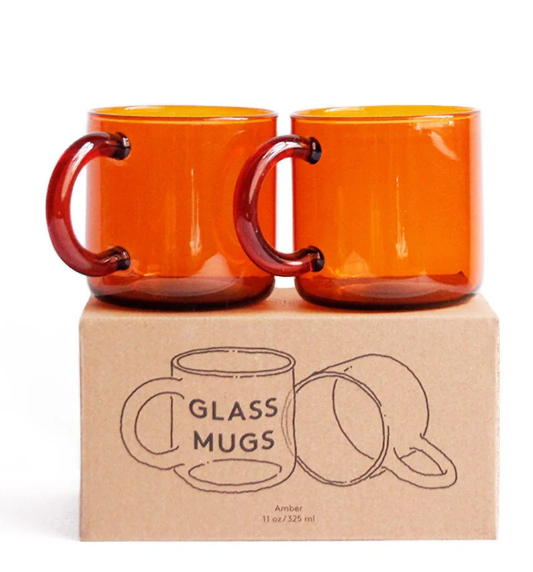
- Raw Materials: Glass mugs are made from silica sand, soda ash, and limestone, providing a transparent and smooth finish.
- Health Benefits: Glass is chemically inert, meaning it won’t react with any beverages, making it a very safe option.
- Production Process: Glass requires melting at around 1500°C and forming. Automated blowing processes can significantly reduce production costs.
- Procurement Costs: Although raw materials are inexpensive, the fragility of glass increases packaging and shipping costs, potentially raising total procurement costs.
- Customization Options: Glass mugs can be customized with laser engraving, screen printing, or shape and capacity adjustments to meet customer demands.
d. Stainless Steel Mugs
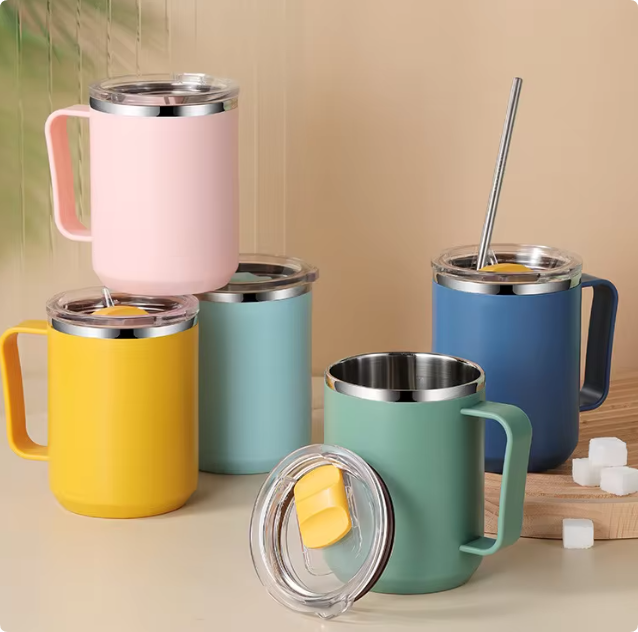
- Raw Materials: Stainless steel mugs are made from food-grade stainless steel, most commonly 304 or 316, which are known for their excellent corrosion resistance and durability.
- Health Benefits: Stainless steel is highly safe and does not release harmful substances. Unlike other metals, stainless steel does not alter the taste of beverages.
- Production Process: Stainless steel mugs are formed through a cold-rolling process, followed by polishing to ensure a smooth surface that resists beverage residues.
- Procurement Costs: Stainless steel raw materials are relatively expensive, and the manufacturing process involves additional polishing, which increases costs, especially for bulk custom orders.
- Customization Options: Stainless steel mugs can be customized with laser engraving or heat transfer printing. Their durability makes them ideal for customers looking for outdoor or travel-use products.
e. Plastic Mugs
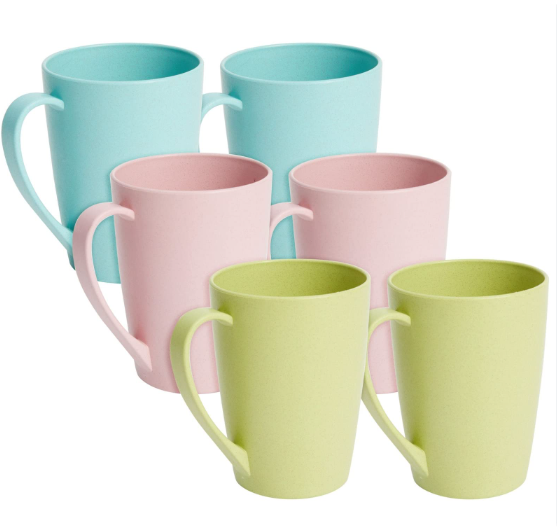
- Raw Materials: Plastic mugs are primarily made from polypropylene (PP), polystyrene (PS), or other synthetic polymers.
- Health Benefits: Some plastic mugs may release BPA or other harmful chemicals when exposed to high temperatures or acidic drinks. Although BPA-free options are available, long-term safety is still debated.
- Production Process: Plastic mugs are produced using injection molding, a fast and low-cost manufacturing process.
- Procurement Costs: The low cost of plastic materials and simple production processes make plastic mugs ideal for large-scale production, offering significant price advantages.
- Customization Options: Plastic mugs can be customized with printing, color options, and shape designs. However, design quality may not be as high-end as ceramic or glass.
f. Bamboo Fiber Mugs
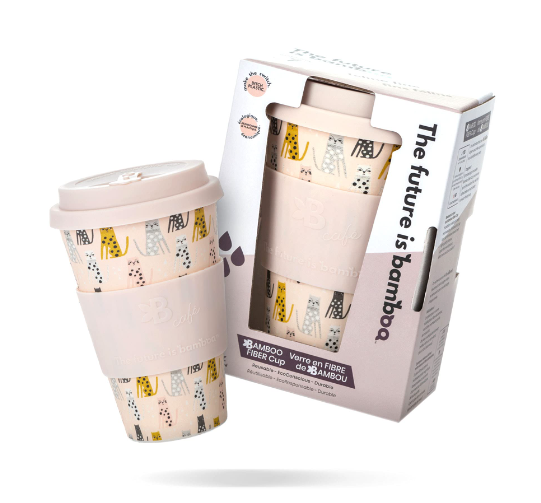
- Raw Materials: Bamboo fiber mugs are made from natural bamboo fibers, sometimes combined with a small amount of resin for structural strength.
- Health Benefits: Bamboo fiber is a natural and eco-friendly material, but some products may include melamine resin, which can release formaldehyde at high temperatures and pose health risks.
- Production Process: The production of bamboo fiber mugs is relatively complex, involving pressing the fibers into shape and curing them.
- Procurement Costs: While bamboo is a renewable resource, the complexity of processing increases production costs slightly.
- Customization Options: Bamboo fiber mugs can be customized with color and pattern printing, making them ideal for customers focused on sustainability.
2. Material Comparison Table for Mugs
| Material | Raw Materials | Health Benefits | Production Complexity | Procurement Costs | Customization Possibility |
|---|---|---|---|---|---|
| Ceramic | Clay | High | Medium | Medium | High |
| Porcelain | Kaolin, Feldspar | High | High | Higher | Medium |
| Glass | Silica, Soda Ash, Limestone | Very High | Low | Medium | Medium |
| Stainless Steel | 304/316 Stainless Steel | Very High | Medium | High | High |
| Plastic | Polypropylene, Polystyrene | Low (may contain BPA) | Low | Low | High |
| Bamboo Fiber | Bamboo Fibers, Resin | Medium (depends on resin) | Medium | Medium | Medium |
3. Procurement Costs and Customization Considerations
When choosing mug materials for bulk procurement, buyers need to balance health benefits with production complexity, procurement costs, and customization flexibility. Here are procurement recommendations for different needs:
- High-end Clients: If you are serving upscale restaurants or cafes, porcelain or ceramic materials are excellent choices. They not only offer health benefits but also allow for intricate customizations, reflecting a premium brand image.
- Outdoor or Corporate Use: Stainless steel mugs are ideal for outdoor or travel-related customers due to their durability and safety, making them perfect for corporate gifts.
- Low-Cost, High-Volume Purchases: For businesses needing low-cost, large-volume purchases, plastic or bamboo fiber mugs are good choices, especially for one-time events or promotions.
4. Conclusion
Each mug material offers unique advantages and limitations regarding health, raw materials, production complexity, and customization possibilities. By considering your customers’ needs, budget, and brand positioning, you can choose the most suitable mug material to enhance customer satisfaction and optimize procurement costs. If you would like to learn more about custom options or request samples, please don’t hesitate to contact us.
